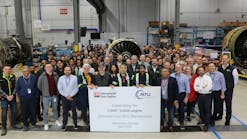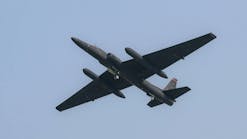PART 66 - A BEGINNING OR THE END?
Will it spell the demise of the general aviation technician?
By Stephen P. Prentice
November 1998
Airline pilots only recently succeeded in getting rid of a so called two-tier employment system. If the new proposed Part 66 is passed it will create a two-tier mechanic certification system. Is this a good idea?
If you haven't been living in a cave these past months, you have undoubtedly heard that the rules governing aircraft technicians and their training are in for a drastic change. Comment period for the proposed changes now ends on January 6, 1999 as reported on the Web recently. Here are some highlights...
DOCKET NO. 27863, NOTICE NO. 98-5
The Notice of Proposed Rulemaking (NPRM) has been released and it was published in the Federal Register on July 9 of this year. All technicians
are urged to read it and more importantly, submit an opinion to the FAA on it by letter or e mail.
The most contentious parts seem to be the creation of two technician certifications, recurrent training, currency, and the seemingly endless talk of conforming to ICAO (International Civil Aviation Organization) and JAA (Joint Aviation Authority) rules — meaning European rules. A copy of the proposed rulemaking can be downloaded from the net at www.atec-amt.com/news.html, or also e-mail FAA about this to: [email protected].
The air carrier business has been pushing for these changes for a long time. In order to conform to European JAA employment structure and proposed Canadian changes. They all have been pushing for the creation of an air carrier technician who will be trained for a longer period of time and have a speciality status unlike anything we have seen so far. Many of those in the trade question why do we have to do things like the Europeans? Their system is seen by many as confining, complex, and unproductive. We don't have to be mental giants to note that the JAA has been pushing our FAA for conformity with their system for a long time now, even though we are not members of the Joint Aviation Authority in Europe. Some see the day coming where our technicians, pilots, and perhaps others, will be controlled by big brother in Europe. Just watch!
PROBLEM? WHERE?
Part 66 need not be abandoned but many feel some refinement is needed. There are some good parts proposed. Instructor status is a good idea, and to some extent, so is recurrent training. However, many of our people say that our system is fine as it stands and there is no need to change it so drastically just for the sake of change.The preamble to the proposed rule states that there is a "problem" with the present system. Well, everyone that I speak with say there will be a bigger problem with a two-tier system and it is going to create a big time shortage of technicians.
The reasoning given in the NPRM for these proposed changes are said to be based on the following:
• Numerous technical advances in the aviation industry
• Recent FAA and international regulatory activities
• Aging aircraft
• Enhancements in training methods
• Confusion among airmen regarding Part 65
I for one don't recall much confusion in the ranks of the technicians I deal with, and as for the other bases for the changes noted above, I think they are a little strained. Sure, we need some kind of upgraded basic education and perhaps recurrent training, but I just don't think we need the creation of two levels of training.
SUPER MECHANIC
For example, take the education requirements that are proposed. The
FAA would, under the new rule, set out a basic education program that will require more hours than a college graduate gets in going for a college degree. The technician, however, will not have a degree after completing the additional hours.
Who will be interested in spending the time to become a "super" AMT(T) (transport) when the reward will be an entry-level job at United or America West for twelve bucks an hour? Not many, I am sure.
If you think we have a shortage of technicians now, just wait until 66 becomes the law. Think back a bit. Every time education requirements for a particular job go up, the number of people in that job declines. An example that I am familiar with are registered nurses. I can remember when there was no shortage of nurses in the hospitals. But, as soon as extended college degree-type training became the rule rather than the exception, their numbers declined. Those that remained, worked longer hours for lower wages. A shortage developed and the rise of the non-registered nurse trade developed to fill the gap. They obviously worked for less money. Nowadays, in most hospitals, you are attended to by a lower-level trained person and the registered nurse is only an overworked supervisor someplace in the system.
You may know about other examples of this happening. In our case, we will have fewer licensed A&Ps and many more lower-level employees doing the work. Unless the pay structure changes radically, there will be no applicants for the schools. Look around, enrollments have been declining and some schools have abandoned their maintenance education programs.
MAINTENANCE INSTRUCTOR
This is a good idea. Like the flight instructor, now the maintenance instructor will have his certificated status. Anything that can raise the status of the teacher in my opinion is good. The training schools support this increased status, but at the same time, express fears that they will not be able to attract enough staff to support the additional training required for the transport trained technician. Schools don't pay a great salary. Who is going to teach all of these super technicians for the required extended training period? If they can't be found, won't this slow the pipeline down? Shortage? You bet there will be a continuing shortage. It's really interesting — the FAA proposes rules that may well eventually spell the demise of the very group they are supervising. Just think — all management, and few, or no workers to do the work.
NAME CHANGE
Don't fall for all this rhetoric that names will make a difference.
Yes, the proposed change to aviation maintenance technician sounds better, but mechanic will be with us for a long time. Whether you are called a mechanic, technician, or aircraft maintenance engineer, your pay will stay the same. Sure, we want to raise the status of technicians and hopefully raise their pay, but when the corner auto mechanic makes more money with a lot less hassle from government, who wants to be an airplane mechanic? Whether or not your status changes will not depend on the government, but rather on what you do for yourself.
TYPE RATINGS?
There is even some talk about being type rated as a mechanic on certain
air transport aircraft. Some suggest that the day is coming when you are going to need a specific rating to work on a particular aircraft. Like pilots, mechanics will need further specialty training and a specific rating to work on a transport category aircraft. Be prepared for more nonsense — it's coming. Europe, in its complex ways, makes life much more difficult for their technicians, but they pay them better. Although nothing is said about type ratings in the proposed changes, I can see it coming down the road for the air carrier business. Just watch!
Many concerned parties are at odds with the proposed new regulation. (FAR 66). Most of the alphabet groups seem to favor modest changes, but not all of them. Some say it needs more refinement and more input from the working technicians who will be most affected, while others mention excessive costs involved with training and certification.
The new rule will draw a big line between general aviation and the transport industry, which is just what the air carrier business wants. Maybe this is good, maybe not. Upgrading and advanced training will be time consuming and expensive and perhaps out of the reach of many — we'll see. Be sure and put your two cents in to the FAA on this.





